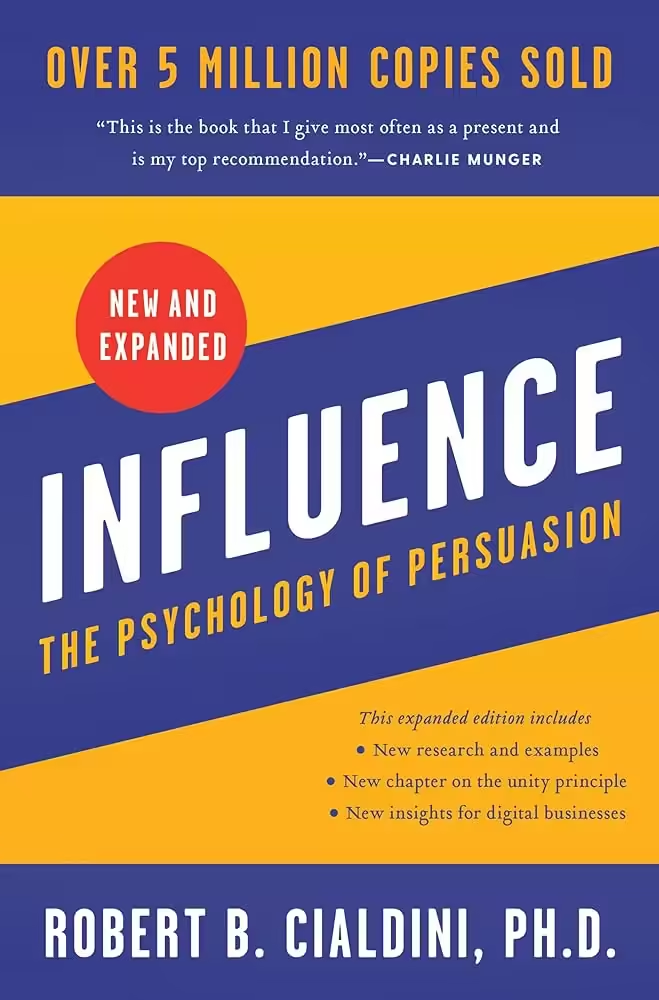In the fast-paced and ever-evolving world of marketing, understanding the intricacies of human behavior and decision-making is crucial for success. One book that has stood the test of time and continues to be a cornerstone for marketers seeking to unravel the secrets of influence is “Influence: The Psychology of Persuasion” by Robert B. Cialdini. Published in 1984, Cialdini’s work delves into the psychology behind why people say “yes” and provides invaluable insights for marketers navigating the complex landscape of consumer behavior.

Cialdini introduces six universal principles of influence, which serve as a roadmap for marketers aiming to connect with their target audience more effectively. These principles are reciprocity, commitment and consistency, social proof, authority, liking, and scarcity. By understanding and applying these principles, marketers can craft more persuasive messages, build stronger relationships with customers, and drive successful marketing campaigns.
Reciprocity is the idea that people feel compelled to give back when they receive something. Marketers can leverage this principle by offering valuable content, free trials, or exclusive promotions. By providing something of value upfront, businesses can create a sense of obligation, increasing the likelihood of customers reciprocating with a purchase or engagement.
People have a natural tendency to be consistent with their past actions and commitments. Marketers can tap into this principle by encouraging small, initial commitments from customers. Once individuals make a small commitment, they are more likely to follow through with larger, related actions. This insight is crucial for building brand loyalty and fostering long-term relationships with consumers.
The principle of social proof highlights the impact of others’ behavior on our own decision-making. Marketers can harness the power of testimonials, reviews, and user-generated content to demonstrate the positive experiences of previous customers. This social validation can influence potential buyers, reassuring them that their decision to choose a particular product or service is a wise one.
Cialdini emphasizes the importance of perceived authority in influencing decisions. By positioning themselves as experts in their field, marketers can instill confidence in their audience. This can be achieved through showcasing industry credentials, expertise, and thought leadership. Consumers are more likely to trust and follow the recommendations of authoritative figures.
People are more inclined to say “yes” to those they know, like, and trust. Marketers should strive to create a likable brand persona by emphasizing commonalities, being relatable, and showcasing the human side of their business. Building a positive emotional connection with the audience enhances the likelihood of consumer engagement and loyalty.
The scarcity principle emphasizes the psychological impact of limited availability. Marketers can create a sense of urgency by highlighting limited-time offers, exclusive products, or limited stock. The fear of missing out (FOMO) drives consumers to take prompt action, making scarcity a powerful tool for increasing sales and conversions.
“Influence: The Psychology of Persuasion” by Robert B. Cialdini is a timeless guide that provides marketers with a deep understanding of human psychology and behavior. By applying the six universal principles of influence, marketers can create more compelling campaigns, build lasting relationships with customers, and ultimately drive business success. As the marketing landscape continues to evolve, the insights from Cialdini’s book remain as relevant as ever, serving as a foundational resource for those seeking to master the art and science of persuasion in the dynamic world of marketing.
Akshat’s passion for marketing and dedication to helping others has been the driving force behind AkshatSinghBisht.com. Known for his insightful perspectives, practical advice, and unwavering commitment to his audience, Akshat is a trusted voice in the marketing community.
If you have any questions simply use the following contact details.